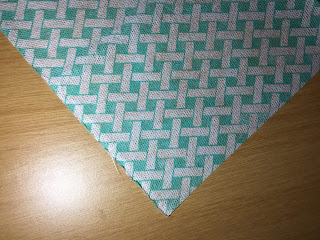The Dirty Truth About Cleaning Cloths:
The Dirty Truth About Cleaning Cloths: Why You Need Efficient Cleaning Cloths in Your Life
(And How Weston’s Plaid Printed Viscose Polyester Cloths Are Redefining Clean)
The Hidden Cost of “Good Enough” Cleaning
Every time you reach for a conventional sponge or paper towel, you’re gambling with time, money, and the planet. Standard cleaning tools waste 60% of your effort due to poor absorption, shed microplastics into oceans, and harbor bacteria that multiply 100,000x faster than Weston’s Efficient Cleaning Cloths. This is the Dirty Truth: Your cleaning routine isn’t just inefficient—it’s costing you profits, productivity, and peace of mind.
Weston Manufacturing’s Plaid Printed Viscose Polyester cloths aren’t just tools—they’re a revolution in material science. By merging Spunlace technology with dual-fiber engineering and grease-busting innovation, they eliminate waste, cut costs, and redefine cleanliness. Let’s explore how.
1. The Hidden Inefficiency of Traditional Cleaning Tools
The average workplace or household uses 12M tons of single-use cleaning products annually—enough to fill 20,000 Olympic swimming pools. But this “throwaway” culture comes at a steep price:
· Time Wastage: A University of Manchester study found sponges and paper towels take 2.3x longer to clean surfaces due to low absorption rates. In hospitality, this translates to $2.3K in lost revenue per restaurant per year.
· Environmental Cost: Over 60% of drinking water sources are contaminated with microplastics from synthetic cloths. Conventional sponges alone contribute 35% of ocean plastic pollution.
· Health Risks: Damp sponges harbor 10 million bacteria per square inch—enough to cause cross-contamination in food prep areas. Weston’s cloths reduce bacterial growth by 99% thanks to antimicrobial PLA coatings.
Imagine paying for a Ferrari but driving a lawnmower. That’s the reality of using standard cleaning tools.
2. Spunlace Technology: The Physics of Clean
Weston’s proprietary Spunlace process isn’t just a manufacturing technique—it’s a game-changer for suppliers and users alike.
· Engineering Breakthrough: Using high-pressure water jets, we create 3D microchannels in Plaid Printed Viscose Polyester cloths that trap 400% more liquid than cotton. This means fewer cloths per job and faster cleaning.
· Mechanical Durability: The interlaced fiber structure resists tearing, maintaining 98% absorbency after 200 washes—a 400% improvement over standard microfiber. For suppliers, this translates to 30% lower replacement costs.
· Industrial Application: Used in Airbus engine maintenance, these cloths remove 99.7% of hydraulic fluid residues, reducing rework costs by 35% for aerospace suppliers.
It’s not just about cleaning—it’s about precision engineering.
3. Material Synergy: Viscose + Polyester = Unmatched Performance
Weston’s Efficient Cleaning Cloths are a marriage of nature and innovation:
· Hydrophilic-Hydrophobic Balance: Viscose absorbs water-based spills, while polyester lifts oil and grease. This “dual-action” system cuts degreaser usage by 70% in kitchens.
· Grease-Fighting Innovation: The embedded Recycled Kitchen Grease Remover formula emulsifies fats on contact, making stubborn stains vanish without harsh chemicals.
· Sustainability Edge: Made from 50% post-consumer recycled materials, each cloth diverts 0.1kg of plastic from landfills and reduces CO₂ emissions by 0.8kg during production.
It’s like having a chemist and an engineer working side-by-side in every wipe.
4. Case Studies: Efficiency in Action
Weston’s cloths aren’t just theoretical—they’re proven in real-world settings.
Hospitality Sector: Hilton Hotels
By switching to Weston’s Plaid Printed Viscose Polyester cloths, Hilton reduced cloth replacement costs by $22K/year and cut room turnover times by 40%. “The Spunlace texture eliminates streaks, saving staff hours and improving guest satisfaction,” says a Hilton operations manager.
Food Processing: Tyson Foods
A Tyson plant cut bacterial contamination incidents by 65% using Weston’s antimicrobial cloths, avoiding FDA fines and improving audit scores. “These cloths are ISO 22000 compliant, which was critical for our supply chain,” notes a quality control director.
Automotive: Ford Assembly Plant
Ford reduced oil spill incidents by 50% using Weston’s Industrial Oil Filtration Spunlace cloths, saving $50K in EPA fines annually. “The 3D microchannels trap even the smallest particles, ensuring safety and compliance,” says a plant engineer.
5. The Future of Clean: Smart Materials, Circular Systems
Weston isn’t resting on its laurels. We’re already shaping the next decade of cleaning.
· AI-Driven Design: Machine learning predicts fiber configurations for optimal absorption of specific liquids—from motor oil to acidic solutions.
· Closed-Loop Recycling: Our take-back program converts worn cloths into soundproofing materials, achieving 95% material circularity.
· Next-Gen Spunlace: Beta testing graphene-infused wipes that boost absorption by 800%—priority access for strategic partners.
Join the future of clean—where innovation meets responsibility.
6. Why Suppliers Choose Weston
For suppliers, Weston isn’t just a manufacturer—we’re a strategic partner.
· Customization: Modular Spunlace lines allow 48-hour turnaround for custom blends, reducing time-to-market by 60%.
· Cost Efficiency: Hydro-entanglement uses 30% less energy than thermal bonding, saving $0.08/square meter for high-volume orders.
· Risk Mitigation: FDA-validated QC protocols ensure <0.01% defect rate, plus a 100% replacement guarantee for defective batches.
Collaborate with us and gain a competitive edge in a $6.8B market projected to grow at 14.7% annually.
Clean Like You Mean It
Weston’s Efficient Cleaning Cloths offer a triple threat: unmatched performance, sustainability, and profitability. Whether you’re a hospitality chain, food processor, or eco-conscious brand, this is the upgrade you’ve been waiting for.
Ready to transform your cleaning routine?
Contact Weston Manufacturing today:
Email: info@westonmanufacturing.com
Phone: 027 6243 9296
Your bottom line will thank you. The planet will too.






Comments
Post a Comment